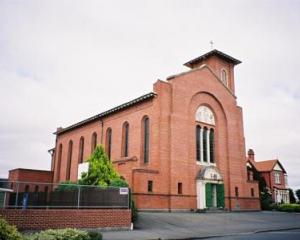Finance Minister Michael Cullen yesterday again dangled the prospect of tax cuts in front of voters but with the proviso they will be introduced over three years if Labour wins this year's general election.
With Labour still lagging in the polls, it was expected Dr Cullen would be more definite in his timing of the cuts - perhaps even introducing the first one on October 1, about a month before the expected elec tion date.
The Government is expected to have a surplus close to $7 billion by June and the budget in May would give Dr Cullen the funds to deliver the personal tax cuts - and perhaps vary the projected timing of them - as long as he could generate enough support among his coalition colleagues in New Zealand First and United Future.
National Party leader John Key has already promised tax relief and Act New Zealand leader Rodney Hide said it was heartening to see Dr Cullen overcome his ideological opposition to tax cuts.
In a speech to the Auckland Chamber of Commerce, Dr Cullen started his election year by reminding people of the achievements of the Government, particularly the improvement of household incomes, the creation of 360,000 more jobs low unemployment, lower numbers on the unemployment benefit and a fall in child poverty rates.
‘‘After delivering $4 billion in tax relief per annum from April 1 this year to families, business and savers, the ongoing strength of the economy and our sur pluses means that we can now deliver personal tax cuts.
‘‘Most people here today know that I am not convinced by the tax-cut evangelism of my political opponents.'' Labour would deliver tax cuts because it was fair, Dr Cullen said.
However, the Government had four tests: it would not borrow to pay for tax cuts, cut services to pay for them, exacerbate inflationary pressures to deliver the cuts or allow them to lead to greater inequality in society, Dr Cullen said.
The Reserve Bank is expected to lift interest rates twice this year following unemployment falling to a 25-year low in the three months to December, and wage and salaries rising sharply in the same period.
Rising wages will keep inflation close to or above the Reserve Bank's top range of 3%, with some economists saying inflation could reach 4% this year and stay there for several quarters.
High inflation could give Dr Cullen an excusenot to introduce tax cuts after the poll, or at least to minimise the extent of them. Dr Cullen said in a later interview a tax cut could help households unable to access assistance through Working for Families.
‘‘I don't know necessarily that that will win an election. I've always said in the past that budgets don't win elections, they can lose them,'' he said. Mr Hide said the first tax Dr Cullen should cut was the 39% top personal rate.
‘‘The fact is that this envy tax serves no purpose, raises money the Government doesn't need and simply serves to punish people trying to get ahead for being successful.'' Mr Key said it was a dithering contradictory speech by Dr Cullen
‘‘Clearly, Helen Clark wrote the line that said there would be tax cuts, and Michael Cullen wrote the four tests which meant it is virtually impossible to deliver them.''













